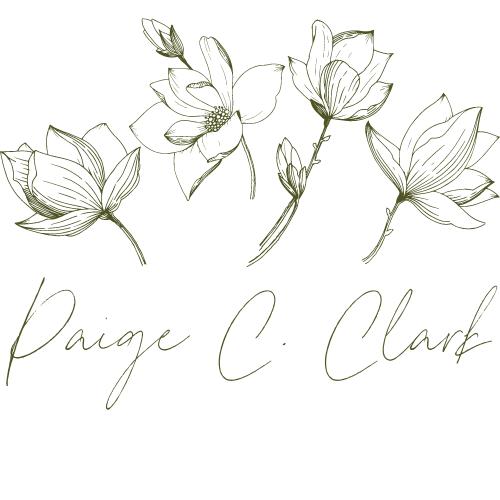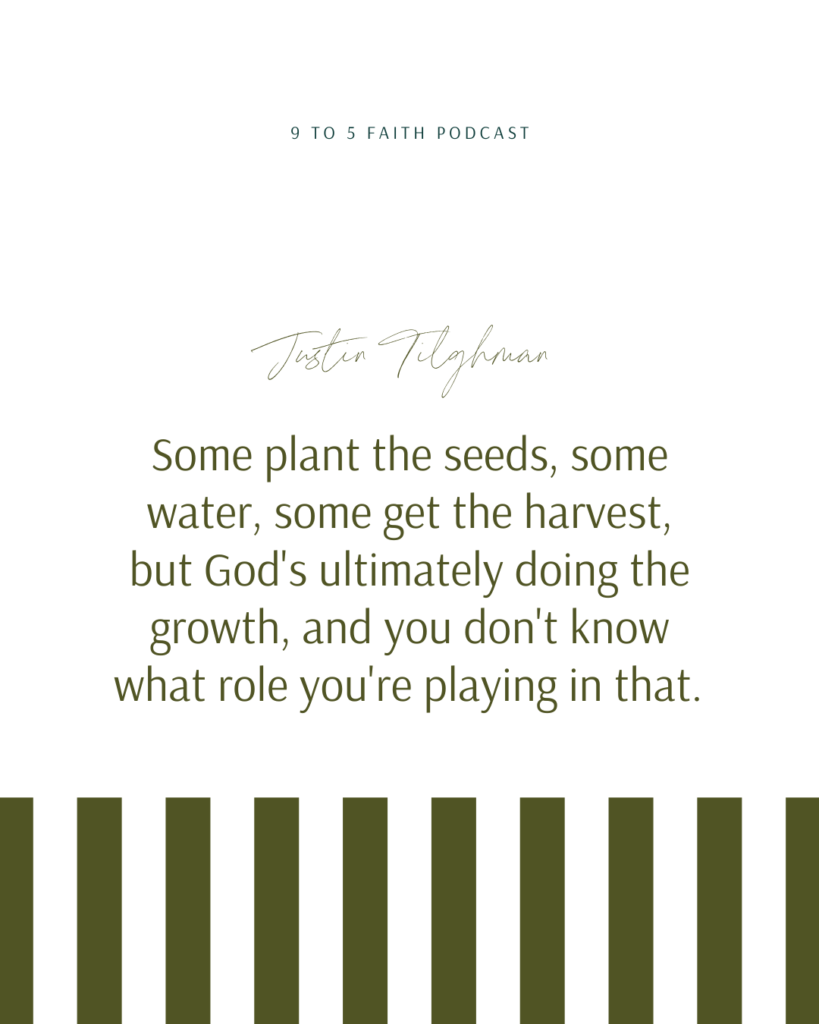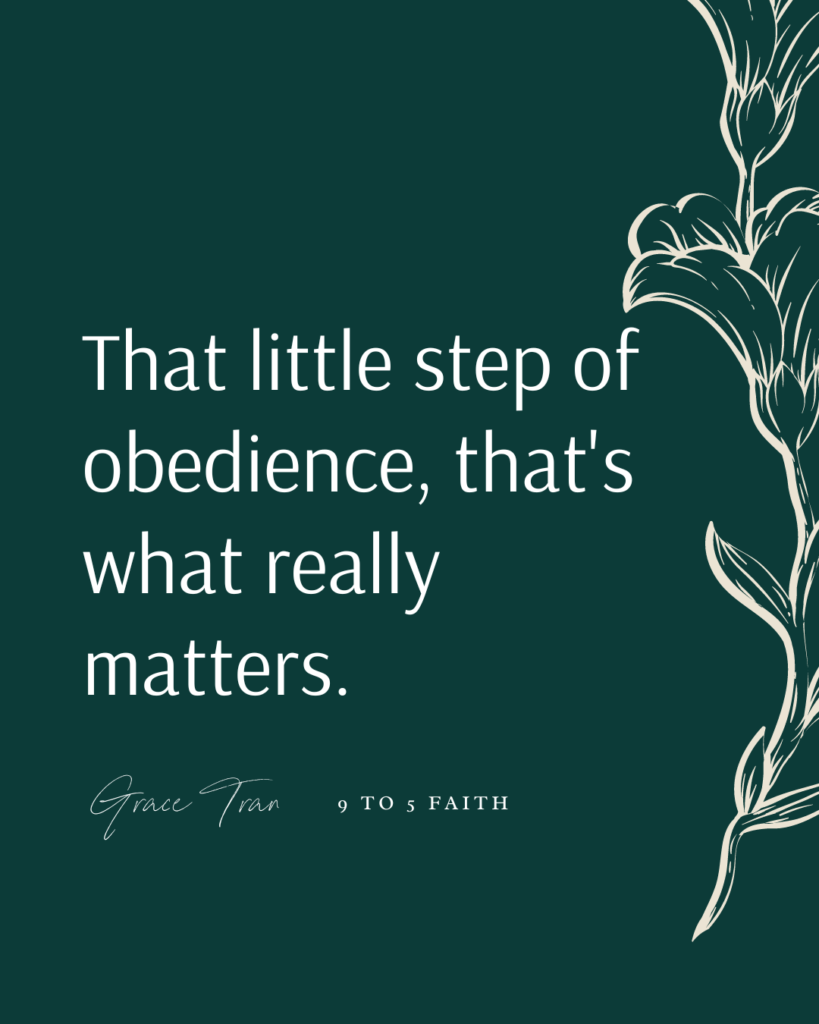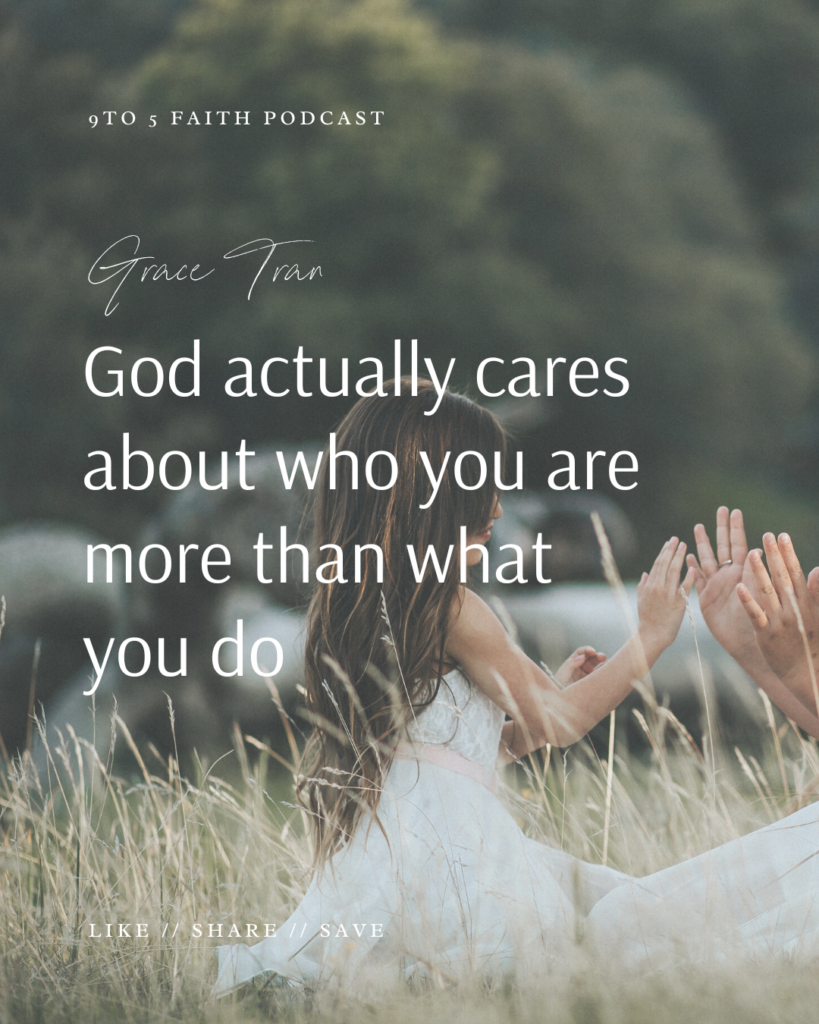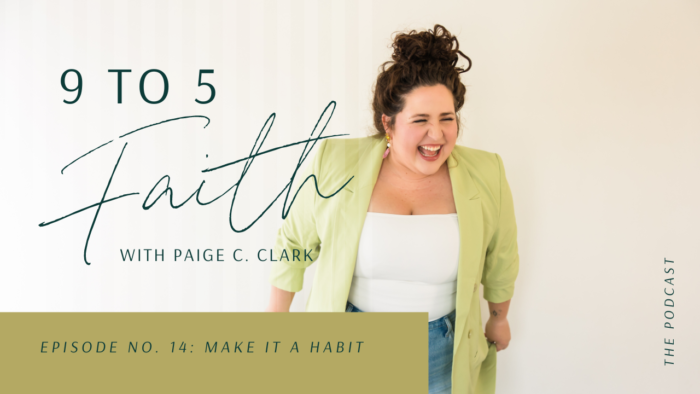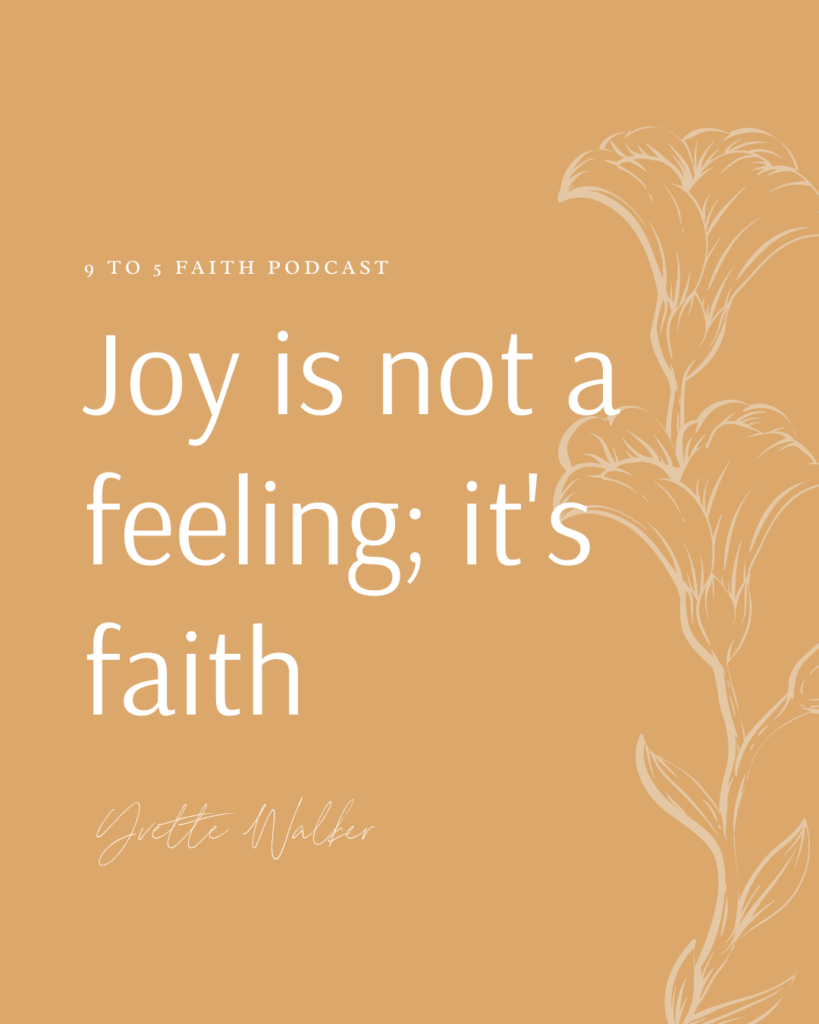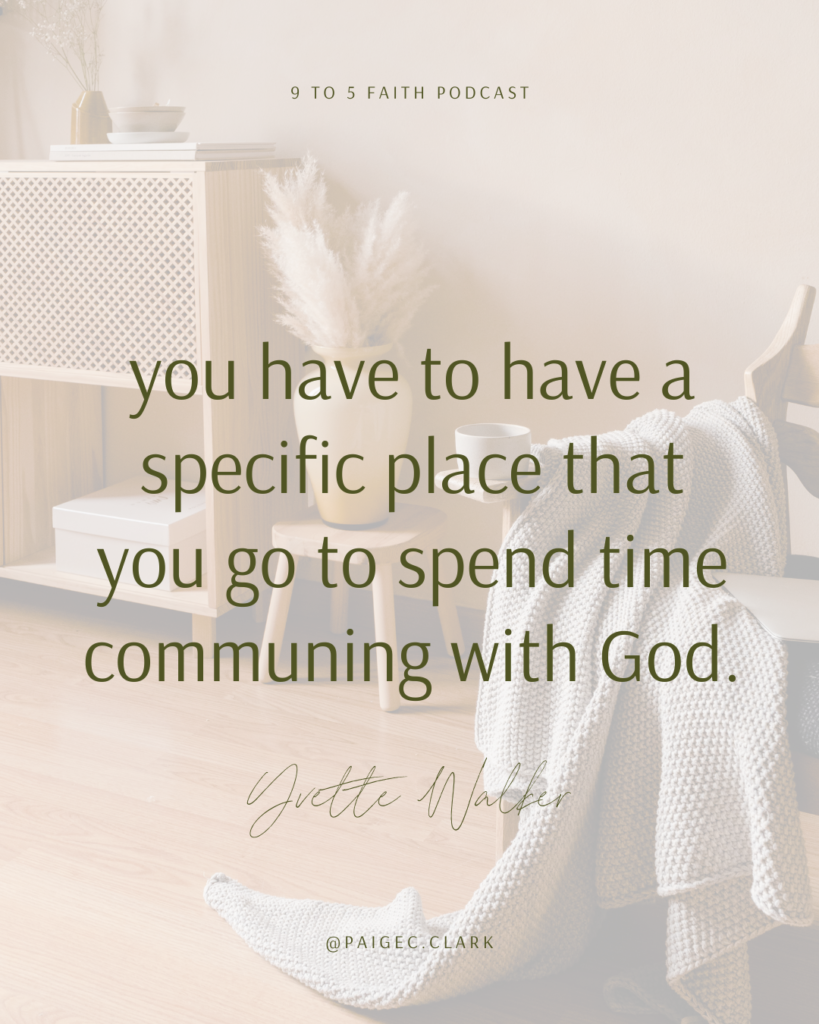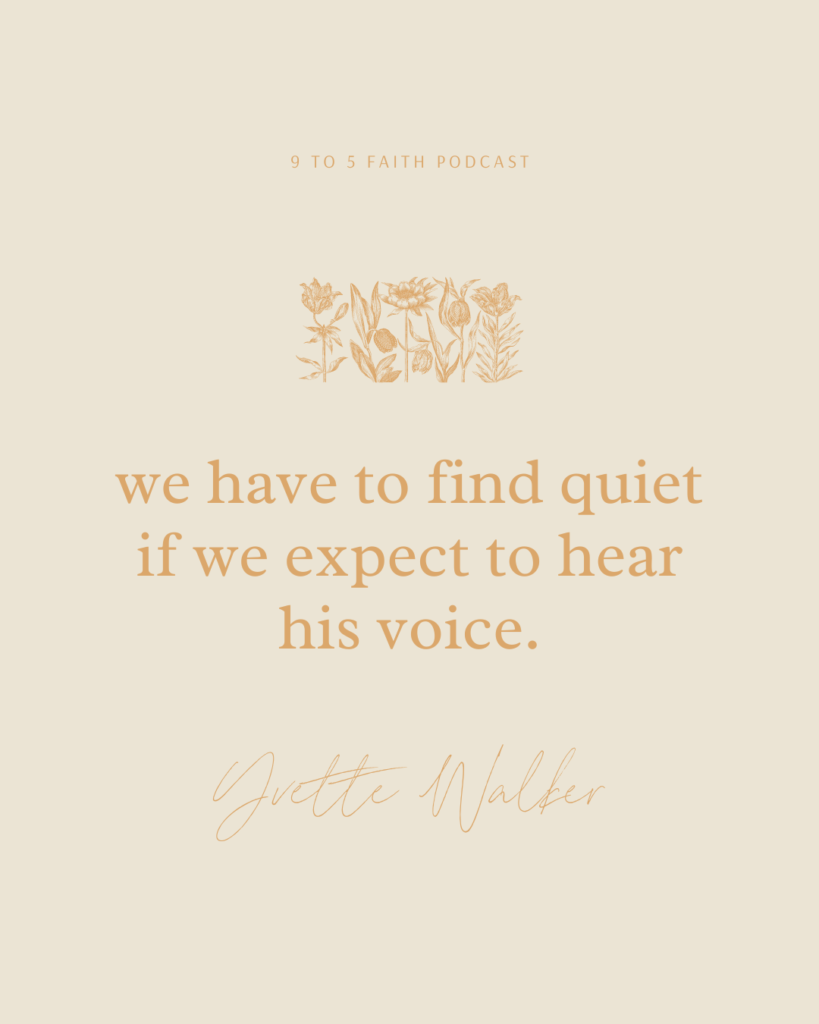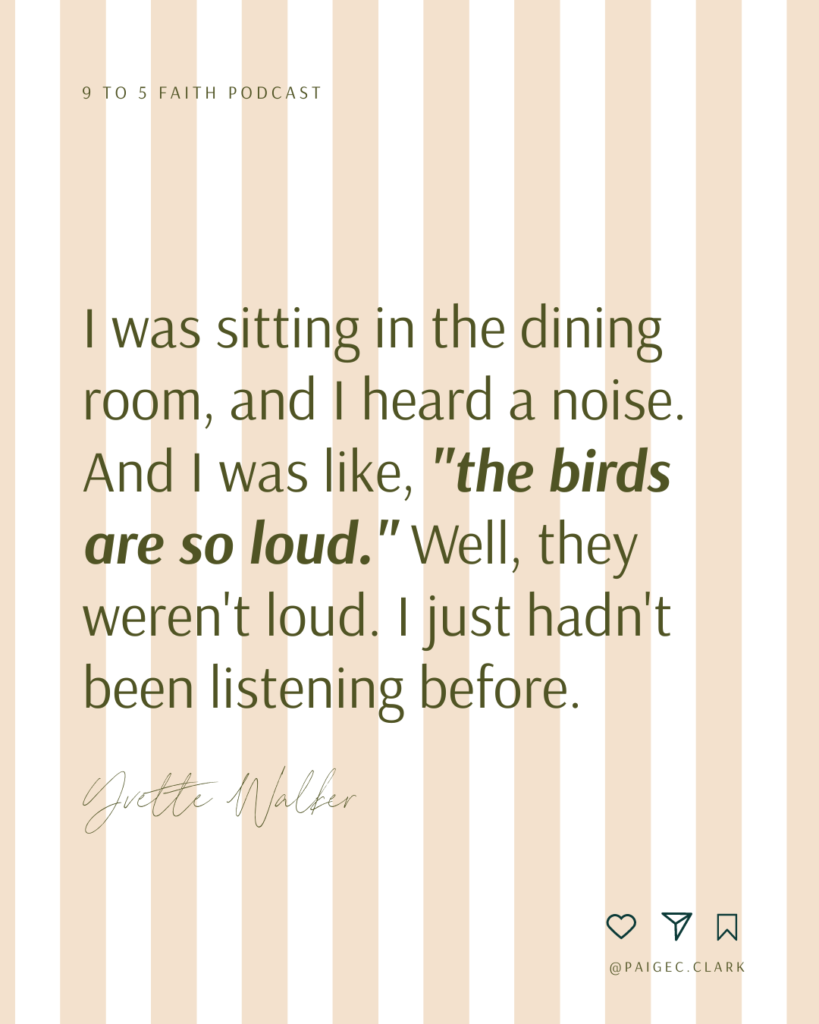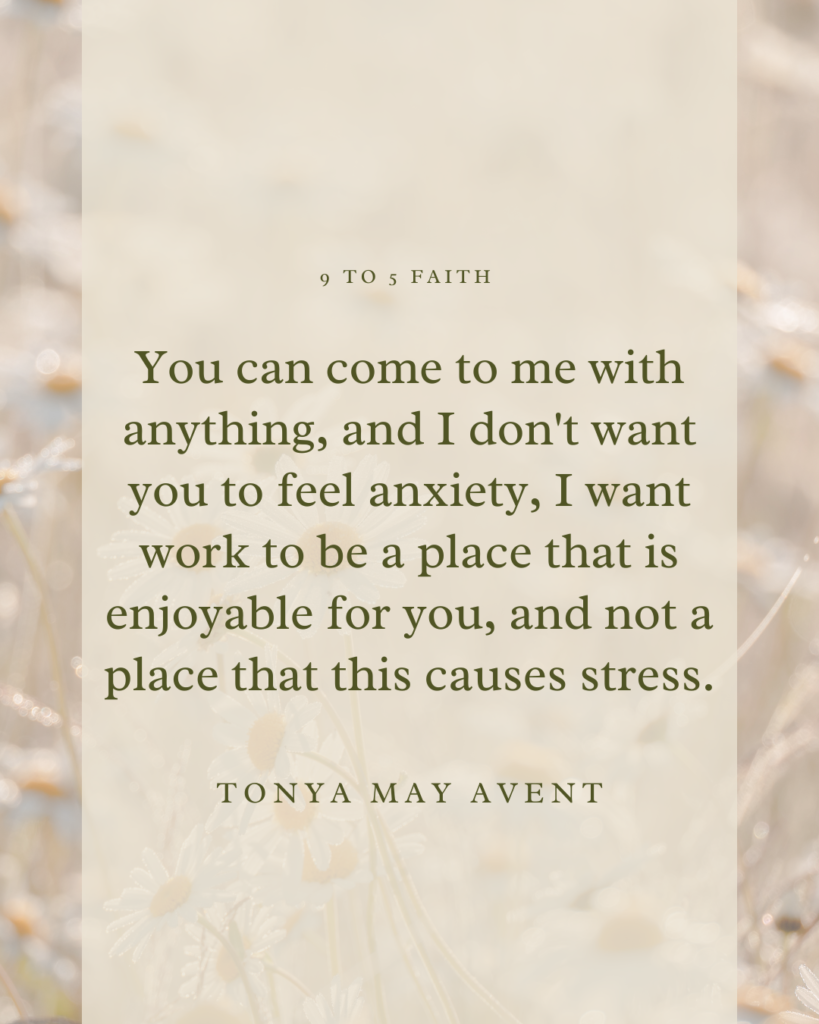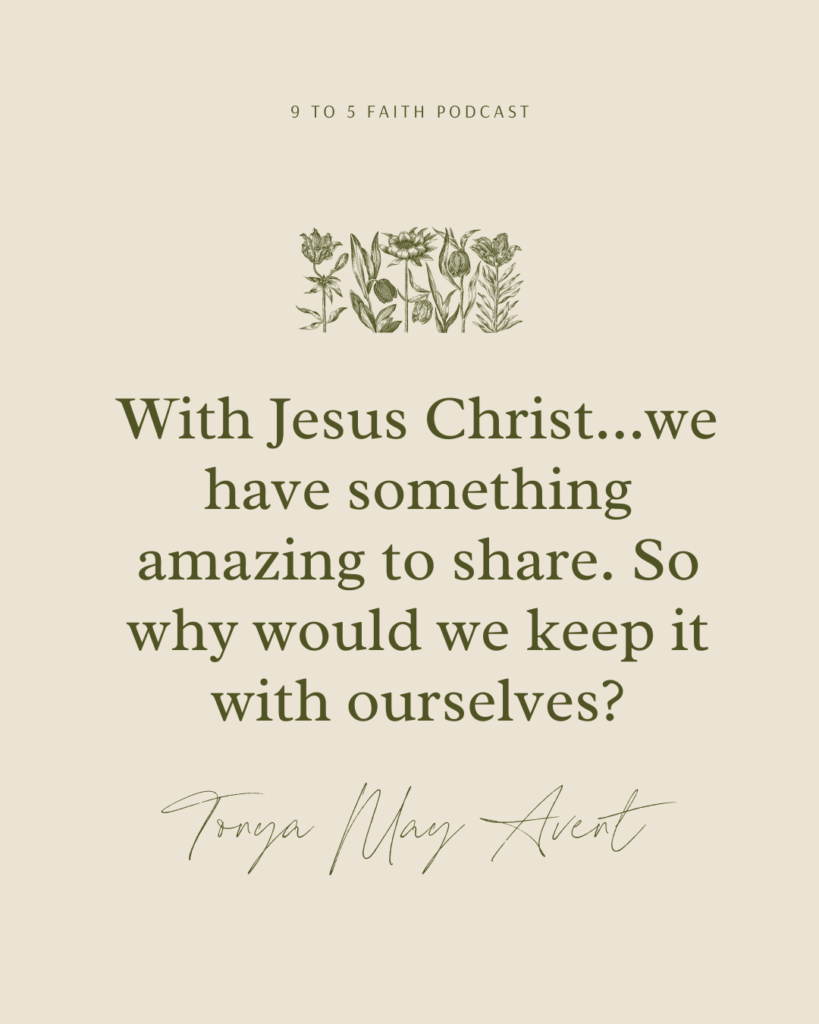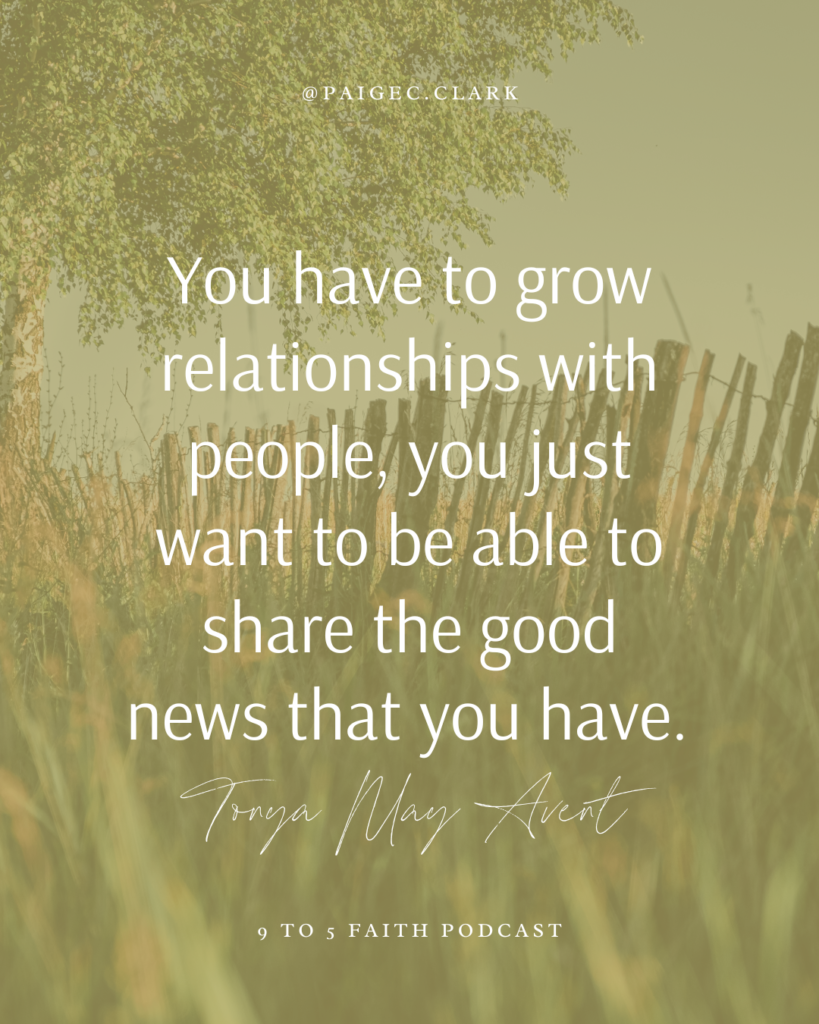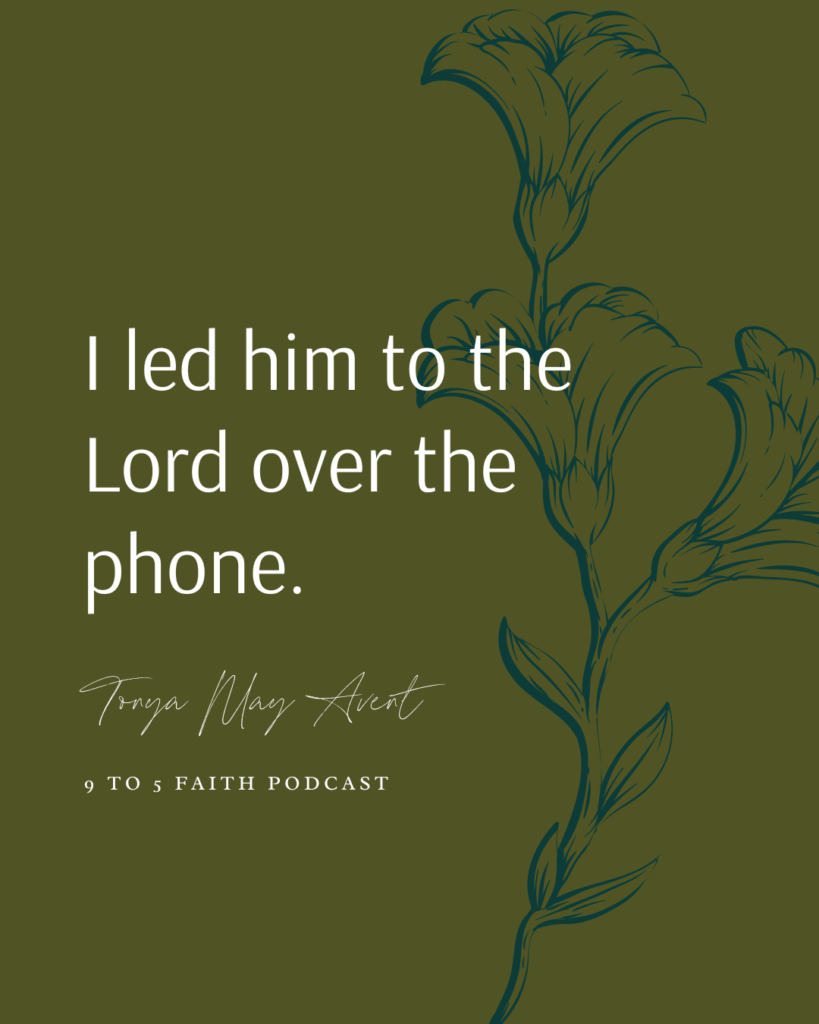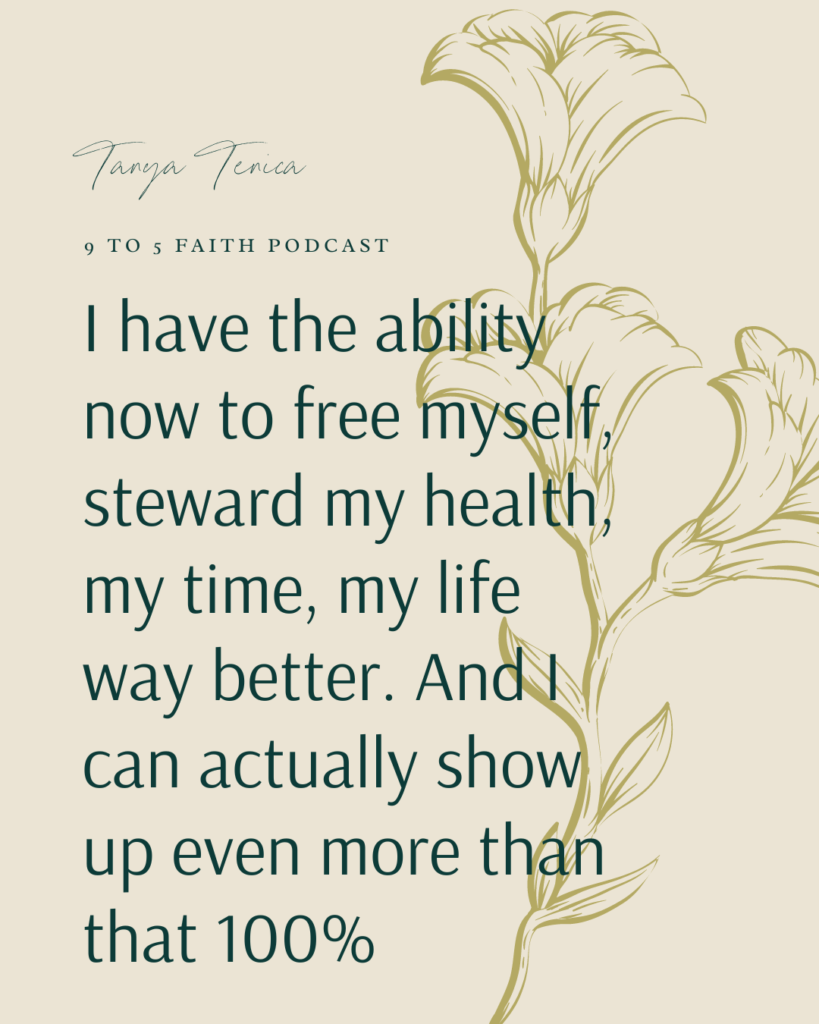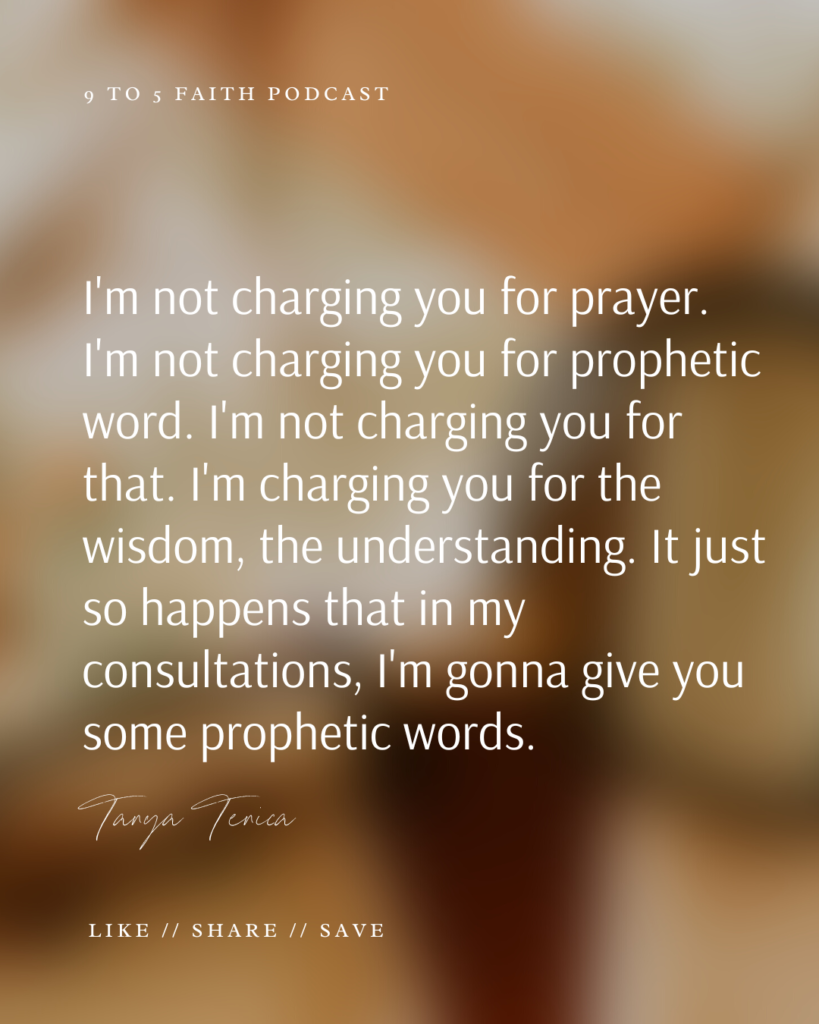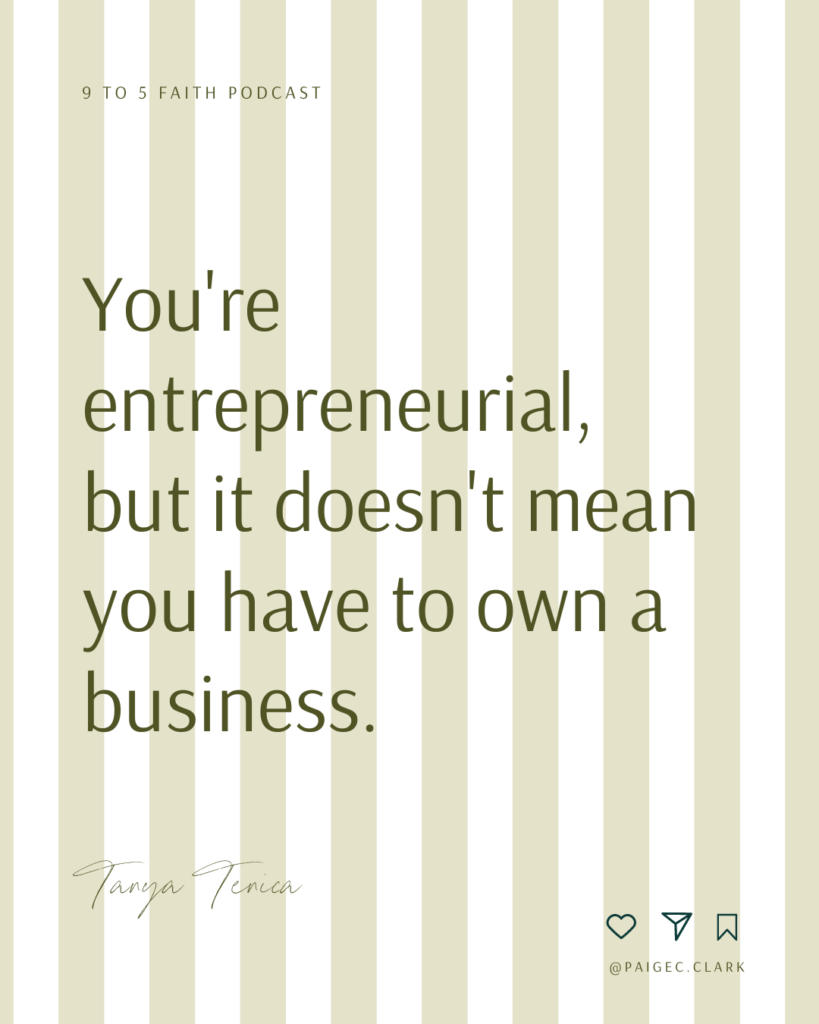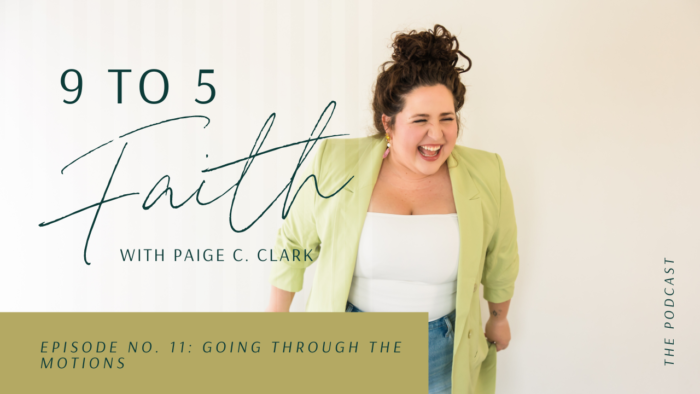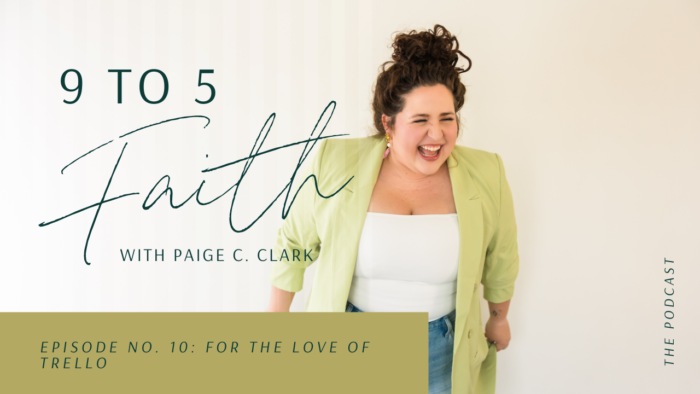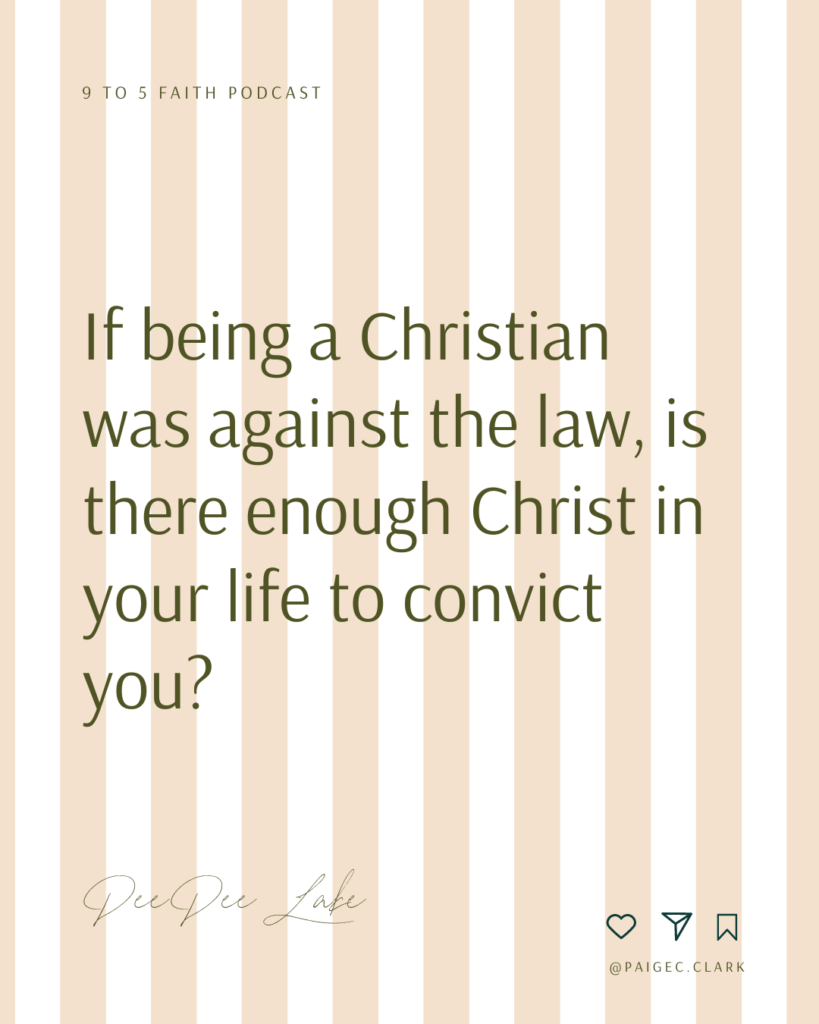This is a transcript from episode 18 of the 9 to 5 Faith Podcast with Paige C. Clark.
Share on Social




Start of Podcast
Paige C. Clark 0:41
Hello, hello everyone. I hope you’re having a wonderful day. I am excited to be here with you and one of my friends Mark David Poland. How are you doing today, Mark?
Mark David Pullen 0:52
I’m doing well. Thank you. How are you today?
Paige C. Clark 0:54
I am fabulous. It is hot. And I have my iced tea. Iced tea is my crutch during the summer. Because if it weren’t, I would drink an absurd amount of Diet Coke.
Mark David Pullen 1:06
Okay,
Paige C. Clark 1:09
I see it is my safe haven, and I drive absurdly far to get good iced tea to really what’s absurdly far, like a half hour each way. Oh, that’s
Mark David Pullen 1:21
Not too bad. I would have
Paige C. Clark 1:23
like an hour out of my day to get like $1 But
Mark David Pullen 1:28
I don’t. I drive that for a good cup of coffee. I don’t know if a half hours of thirdly far.
Paige C. Clark 1:33
Okay. I mean, objectively, I’ve had people like hardcore judgment you for, like, our little round trip area, to go get like two containers of iced tea.
Mark David Pullen 1:44
No, no judgment here.
Paige C. Clark 1:47
Well, much appreciated. So Mark, can you tell us a little bit about yourself? And what do you do, and what you’re about? Sure.
Mark David Pullen 1:56
My name is Mark David Pullen. I am a full-time building maintenance worker. Full-time Father, full-time husband, and aspiring full-time author
Paige C. Clark 2:06
as a lot of full-time jobs, Mark. Yes, it is.
Mark David Pullen 2:09
Yeah. And some of those hats never come off some of our building maintenance hats. I can hang that one up at 330. But the father and husband know those hats seem to work their way on and off the head. All throughout the day.
Paige C. Clark 2:21
Yeah. And even when you’re at work, you’re still husband and father. Yes,
Mark David Pullen 2:25
Absolutely. Especially when your wife is a teacher in the district you work in, and your kids go to school in the district you work in. So yeah,
Paige C. Clark 2:32
that’s cool. Yeah, that’ll do it. I always say so, me and my husband. We don’t have kids yet. And when people talk to me about it, I’m like, listen, I like kids. I adore my nephew and soon-to-be nice. But once you’re a parent, you’re not a parent ever again.
Mark David Pullen 2:53
You’re absolutely right. I
Paige C. Clark 2:54
am not ready.
Mark David Pullen 2:57
Because my mother always told me that you like you need to sleep a good night’s sleep. Because when you become a parent, like that phone could ring at two in the morning and you have to answer when you’re the parent. And I remember we were in the hospital getting ready for my son to be born, and my mom was like, this is the last good night’s sleep you’re ever going to get. She’s like, and it’s going to be a rough night. So you need to savor this. And she was 100%. Right? I don’t think I’ve slept well in five years, six years.
Paige C. Clark 3:22
I’m just dropping hardcore truths, right? But like, I’m like, even after, like, once, they go away for college or like on their own. You’re still a parent. Yeah, you’re not a parent ever again. So that’s my go-to line is like, I’m like good until I’m ready to be not never not apparent again. So you always wear that parent hat.
Mark David Pullen 3:47
Yeah, I get it. I understand. 100%.
Paige C. Clark 3:52
So tell me a little bit about your job.
Mark David Pullen 3:55
Well, like I said, I’m a full-time building maintenance worker for a local school district. And that’s pretty much all the excitement there is. I go in and move snow when it snows out. I go in and cut the grass when the grass needs to be cut. And then everything in between.
Paige C. Clark 4:11
Gotcha. Do you work on a team of people?
Mark David Pullen 4:14
I do. I’m one of six maintenance guys.
Paige C. Clark 4:16
Okay, for the whole district? Yes. Is that like too many people or too few people? Ah,
Mark David Pullen 4:23
I think we’re good. We’ve got three buildings we cover. I think I think we’re pretty good.
Paige C. Clark 4:32
That’s not bad. That’s not too shabby. Yeah, sometimes I’m like, it’s like it’s either like one way or the other. But like you’re hearing, something properly staffed is always a good thing.
Mark David Pullen 4:42
Yeah, I feel I feel like we’re good. I really do. Everybody has their own thing that they’re good at. So we’re a pretty good team. We’re more of a well-oiled machine, I’d say
Paige C. Clark 4:52
any, and you also mentioned snow which is like a foreign concept to me where I’m just like, oh yes, knows that schools such as Just in other places,
Mark David Pullen 5:02
And that’s one of those things all the teachers laugh at us on the way out the door. Haha, see it? Not tomorrow because we’ll be open. It’s no one’s like yeah, we’ll be here. But
Paige C. Clark 5:11
still shoveling that snow. At least, I hope you have more than a shovel.
Mark David Pullen 5:19
Thank God, knock on wood; we have more than a shovel. And you know, I thought we were gonna get away. Get away. Pretty good this year. But in the last three weeks, I think we were in for more snow removal than we had been the whole entire winter thus far. Yeah, my gosh. That’s great. We thought we thought we had skated by, and then all of a sudden, here we are, you know, every weekend movies now.
Paige C. Clark 5:41
Is there still snow on? Oh, no, no, no, no. Okay.
Mark David Pullen 5:44
We’re good. Thank God. No,
Paige C. Clark 5:46
I know. I know. Like up is in the mountains like it. There is still open. I think it’s still snowing up there.
Mark David Pullen 5:55
We’ve had snow this late in the year, but this year, thankfully not.
Paige C. Clark 5:58
Thank goodness. Wow, we’re really stereotypical and talking about the weather. I was like, Yeah, we actually talked about the weather, which is like really common for people who like to know I’m in Phoenix because then they’re like, oh, it’s really hot there, isn’t it? I’m like, Yes. Like It’s Hot. Like,
Mark David Pullen 6:18
That’s the good seasons, the hot ones. Everybody likes the hot season. No,
Paige C. Clark 6:23
not 120 degrees, like, Yeah, it’s funny, though, because we make national news. And I’ll have, like, my dad calling me to be like, Hey, I saw Phoenix is on the news. Are you okay? I’m like, Yes. I also have air conditioning and cold water. We’re gonna be here, apparently. Yeah, apparently, our heat waves make national news. Cool. So what does a day in the life look like a day a week, kind of how you move throughout your day and spend time with the family and do the husband duties and all of that good stuff?
Mark David Pullen 7:00
Well, a day at work. Really, the beautiful part about my job is that it’s different every day; there’s no way to settle into a routine because you could think you’re cruising into an easy day, and then the phone rings, and all of a sudden, you’re up to your elbows and could be anything you just you never know. So it’s eight hours of that. And then then I clock out at 330. My wife gets done at about 315. So we have the luxury. I live we live seven minutes from where we work. So we get to carpool. We carpool every day, we meet at the truck, we go pick up the kids, and that’s when the evening starts. You know, that’s when real life for me standards I should, you know, it’s pick up the kids, it’s dinner, how was your day working on homework, you know, family stuff, Dad stuff, you know, some you know, some nights, I got to cut the grass, some nice things have to get done. But we try to do as much as we can as a family. You know, that’s what’s really very important to me, incorporating as much as I can. With them. Yeah. So
Paige C. Clark 8:06
and how do you kind of fit in? Like, what is your involvement with your church community look like? You know, are you guys involved in any way? Is your do you do it on your own? You know, what’s that look like? For you?
Mark David Pullen 8:24
Sure. We actually just became new members two weeks ago to a new church that we have been going to for a little over a year. So we’re excited about that. Yeah. You know, great kids programs, Sunday mornings, you know, super excited about that. And it’s we’re looking forward to what’s ahead. For us, with that, in always, it’s always exciting to find a place where you can put your roots down and call home, and we’re very excited about that. Yeah.
Paige C. Clark 8:50
Yeah. And what does kind of like is it just Sunday for you guys? Or is it throughout the week or what?
Mark David Pullen 8:59
Right now? Right now, it’s just Sunday. We are. Actually, we’re about 50 minutes from okay. So, you know, by the time we get out of work and get things situated, we’re pretty whole for during-the-week stuff, but actually, eventually, we would like for them to be a little more flexible there. And that’s kind of gold we’re working towards, but for right now, yeah, it’s Sunday mornings.
Paige C. Clark 9:22
Yeah. So tell me a little bit about, like, what your one-on-one time looks like with God, and how do you find the time with everything that you have going on to make sure that you spend that intentional time with God?
Mark David Pullen 9:38
Sure. Um, one of the things that I like to do is throughout my day, even though it can get crazy, you know, a lot of people’s jobs can get crazy. I like to seek quiet moments. You know, there are pauses, you know, there are breaks in the day where you can kind of shift in autopilot, and you can keep going and charging ahead, but your, you know, your body’s doing the work your brain is allowed to wanderer, and I really, it’s in those quiet moments that God speaks to me and that we can have that time to just kind of sit. And, you know, be inspired. You know, he can really speak things into your heart and into your mind in those moments. And that’s, that’s one of the biggest things that I tried to do is just seek after those quiet moments.
Paige C. Clark 10:19
Yeah, I heard something one time, and I was like, like, it just has resonated with me so much. And it says, like, if you work with your hands, rest with your mind, if you work with your mind, rest with your hands. Absolutely. And that has been like, super, I like life-giving, but like, also, like freeing from like guilt and shame. For me specifically, because I’m like, on my computer all day, I work a desk job. Like, when I get to my weekend, and when I like to have, you know, a Sabbath, or I’m resting and spending time kind of refilling my tank with God and all that good stuff. You know, I want to go outside, and I want to work in my garden like I want to draw, and I want to paint and things like that, where, you know, it’s not restful, and kind of the typical sense, but I work with my brain to rest with my hands. Absolutely. Do you feel like that’s true for you? And, like, how do you guys either find your weekly days of rest? Or if you guys observe Sabbath or anything like that?
Mark David Pullen 11:24
Oh, absolutely, I think I think we do a good job of that of trying to take off, take the hat off when we can, and, you know, letting life, I guess, kind of fall into place around us, you know, just kind of take the hat off, take that deep breath and say, Okay, let’s it’s time to downshift for the day time to downshift and just kind of move forward at a much slower easier pace. Absolutely.
Paige C. Clark 11:48
Yeah. And, and we talked, you talked a little bit, kind of like, before we hit record about kind of the stereotypes around blue-collar workers and, and faith and God and like, what that looks like, and all that good stuff, can you talk about that a little bit more?
Mark David Pullen 12:10
Sure. So, you know, I try to work with dignity; you know, I work in an environment where you can always be loud and robust about your faith. So I try to work, I try to be diligent, and I try to work, you know, with dignity; I would like to, even if I can’t talk about it, I would like people to be able to see Christ through my actions, you know, and I would like for them to look at me and know, there’s something different, and I would like them to be able to, you know, maybe if we have a second, you know, they can quietly approach me and asked, you know, and then we can talk but, you know, not everybody has the ability to talk openly, you know, in their workplace or be, you know, vibrant with their faith. And, you know, so in those environments, there are still ways to exhibit the love of Christ. And you can do that through your actions, and you know, what they will they’ll know what’s buyers? Love? Absolutely.
Paige C. Clark 13:04
Yeah. And what, in what ways has that kind of, like, played out in your life and, working with, like, what unique challenges? Do people like in your industry or, you know, another type of, I don’t want to say blue collar, but I’m using your own words, blue-collar workers, like what you need because I’m, I’m foreign to kind of that environment, what kind of what unique issues do you guys kind of face when it comes to practicing your faith in walking it out with God? And what does that look like? What is the solution look like? If anything at all,
Mark David Pullen 13:41
You know, it’s there’s days when you’re stuck in a truck with somebody, and you know, you can, you know, these guys are my family 40 hours a week, you know, that’s the way I look at it like I see them pretty much if you factor in time, I see them more than I see my family. So you know, it’s important to cultivate relationships with these with the people you work with, it’s important to, you know, nurture those relationships, because they are, though you see them frequently, you know, five days a week, let’s face it, if you don’t work overtime, five days a week, eight hours a day, you know, and they’re people too you know, they have things going on in their lives that, you know, they need help with, they need to talk to and why not be that person, you know if you have the opportunity, then you can be that ear, you know, I mean, you can shed light on to what they’re dealing with, maybe you can’t maybe you can just be listening here. But that’s the way I look at it is that they’re they are my family for 40 hours a week. So I try to cultivate those relationships. I try to nurture those relationships because, you know, I don’t mind being that guy. I don’t mind being the guy that people can come to, and people can talk to, you know, that’s, I think that that’s it’s an important role, and I think every workplace has that person, so I don’t mind if I am that person and I could be totally wrong. Person. I don’t mind being that guy.
Paige C. Clark 15:05
Yeah, yeah. And I think it, like, opens up the opportunity for maybe, like, not at the moment, you know, when you’re telling Jesus to people, but I think what it does is it like puts your foot in the door so that so when they have a situation that they might need support in whether it’s through prayer or, you know, discipleship or whatever it is that they know that like you’re a safe person to go to. And
Mark David Pullen 15:35
That Lily and I’ve had, I’ve had instances where they’ve, hey, you’re a church guy, you know, this is going on Ken, can you just I don’t want to pray with you. But can you say a prayer and say yes, absolutely? And then to be able to explain to them that you know what? Prayer and God are not necessarily a Get Out of Jail Free card? You right? Just because I’m willing to pray for you like, the response you get may not be the one you want. Yeah. And then to be able to explain to them, you know, a little more about, you know, how it works. And that, you know, sometimes the answer we get may not be the one we want, but it might be the one we need. And that’s not always hard. They’re not always an easy pill to swallow for somebody. But, you know, that’s I’ve absolutely had those instances where things like that have happened. Yeah,
Paige C. Clark 16:24
yeah. And so, like, in what ways? Do you like, let people know your church guy, because I know some people who are like, Oh, I have, like, across to my cubicle, okay, you don’t have a cubicle. Or I’m assuming you don’t have a cubicle if you’re, you know, working around in your truck and on the different campuses and whatnot. So, you know, what does that look like for you?
Mark David Pullen 16:49
Well, I, you know, I do try to have that quiet faith, but when the opportunity does present itself, you know, the guys that I work with, they know that I go to church, you know, they know that I’m a Christian, they know that I believe in God. Because although we’re not allowed, necessarily, you know, we can’t be open about it. But you know, if you broach the subject, like, Hey, you started this, I did, you know, so I can kind of, I can write my foot in that door, too. So you know, the guys I work with, they know, because I’ve told them, you know, I’m like, yeah, we’ll absolutely, you know, if there’s anything we can do, we’ll be in prayer for you and their wives like, well, because I believe that prayer is a wonderful thing. Yeah. And that’s, that’s how they know is that although I do try to live that quiet faith at work, I’m also, if you open the door, I’m going to let you know.
Paige C. Clark 17:37
I love that too. Because, you know, sometimes it’s just like, you crack the door open a little bit, I like swung it open through both doors. And when you say, like, you’re kind of not allowed to, I think I get what you mean. But are you speaking from, like, in terms of like, a managerial position, and like, these people who you work with are kind of like, under you as, like, as your employees? Or is it more so like? Like, like a work culture? Or is it like an actual rule?
Mark David Pullen 18:13
No, it’s not a rule. Okay, more like work culture, I would say, you know, and as Christians, we’re not the most popular to begin with. Right, that makes any sense? Oh, yeah. You know, there’s a lot of things that are tolerated, I believe, today, and being a Christian isn’t one of them. Right. So. Really, it’s this kind of a work culture thing, I believe.
Paige C. Clark 18:42
Gotcha. Gotcha, gotcha. Yeah. Because I mean, and, and you don’t have to divulge this, but I know, especially like working in public school systems. You know, that also gets on really shaky territory. And I’m sure your wife has, you know, things to speak to in her interaction with, like, the kids on the campus and whatnot, of where it gets into, like, some real, sticky situations in terms of like navigating it from a Christian perspective.
Mark David Pullen 19:15
Absolutely. And she is actually she’s the same way she would tell you that, you know, she will, you know, she has the cross on her Bible. She has the teacher’s prayer on her Bible or on her desk, I’m sorry, on her desk. And she can’t, you know, if a child is like, Hey, what’s up with that? She can talk about it, but if they don’t, she can just say like, Hey, see this, you need to be looking into this. Like, it’s just one of those. Right? If they broach the subject, she can see you can go into a little bit of detail, but she can’t, you know. Yeah. And I mean, things, I guess,
Paige C. Clark 19:51
also, if the situation was reversed in terms of, like, you know, if a teacher was a Satanist or something, I wouldn’t want right them to be putting that on my kid, not saying that Christian is equivalent to see. But in terms of belief systems, if someone had a different belief system that I might not want my kids to expose to, you know, I wouldn’t want them to freely give that information to my kids; if I had kids, I’d assume. But on the other side of that, too, I think there’s also, like, the reason, why I asked about, like, the managerial stuff, is because, like, sometimes that can also influence your kind of interactions with not subordinates, but people who report up to you. I just got back from a conference in San Diego with the gal who, the week prior to the conference, was no longer my direct report; she got moved laterally to me. And so when we went to San Diego, I was like, No, we’re gonna have fun, like, I don’t have a page, like, I get to be like coworker page, and we get to have fun like that. And so that’s why I was asking that question. Because I’m like, yeah, there is like a little bit of complication, I guess, when you have like a team of people reporting up to you, and you are held to not your own standards, but like, also like company and like, organizational standards as well. Absolutely. Yeah. So um, when it comes to, like, practicing your faith, like, what is one of the biggest struggles that you have?
Mark David Pullen 21:37
My biggest struggle, to be quite honest, is putting God in a box. You know, I work eight hours a day, five days a week. The last thing I want to do by that, I find myself doing more often than not, putting God in that box and then checking him off after church on Sunday, like, okay, you know, crossing them off. Like, is one more thing off the list? Okay, check the box. We did it. You know, and that’s why we believe I believe that would be my biggest struggle. Yeah, I’m definitely working on it.
Paige C. Clark 22:10
Yeah. And are you talking more in terms of just, like, your interaction with him because, like, I get like church on Sunday and then like, checkoff, but also like, when people talk about like putting God in a box, it’s like, limiting beliefs about God and like, what he is able and capable of doing in your life?
Mark David Pullen 22:28
Yeah, try not to think of it like that because I can look at what he’s done for me, and I can see how he’s guided my footsteps to where I am. Yeah. I would have to say, mainly, for the church thing on Saturday, you know, making it, you know, and does it, you know, are there days where my prayers at night aren’t as strong as they could be? Are they a little bit faster? Absolutely. But, you know, as I said, that’s something that I’m trying to work on. Is that not putting him in that box? You know, because, as I said, I have seen where I’ve been, where, what I’ve come from, like, where he’s guided my footsteps? And he deserves better than that.
Paige C. Clark 23:10
Yeah, yeah, for sure. And I also think too, like it, it limits gods, you know, doesn’t limit God, but it limits us to be able to be used by God in other areas of our life. Absolutely. And I think too, like we, when we just kind of use it as like a checklist item, it becomes obligatory rather than a relationship.
Mark David Pullen 23:43
Absolutely. And that’s, and you know, it’s days like that when the 50-minute ride to church seems to take 100 minutes, and then the 45-minute sermon takes 90 minutes. And it’s, and it’s usually before the day is over that I’m, you know, kicking myself going like, okay, you know why that was right. And it was because, you know, my up and down wasn’t right, you know, and I find that when you’re up and down is right, though, you know, your vertical is right, your horizontal, you know, everything else falls into place.
Paige C. Clark 24:14
Yeah. Yeah, absolutely. And I think too, like one of the things I like, I really want to keep true on this podcast is, is the fact and it’s a hard question to ask because I’m like putting people on blast like hey, like, where do you suck in life? Because we all have those areas. I wouldn’t put it. I’m not going to tell you that you suck, Mark. But we all have those. We are all. We all fall short. And we all have weaknesses. And so I always just like to roll that one in there because I feel like it is so important to talk about because, you know, when I was recording with another couple this week, I asked him, you know, like, what’s your what’s, Is your daily life look like? And with your walk with God, he’s like, do you want the ideal answer? Or do you want the real answer? I’m like, No, I want the real answer. I have an ideal answer my ideal. Yeah, I totally wake up every single morning; I, you know, read Scripture, I have my quiet time for an hour and a half, and then I go to the gym, right? Like, that does not happen before I sign into work every day. The real reason is that I listen to Christian music in my car, and I pray to God before bed on a daily basis; the majority of the time, that’s what it looks like. And so I feel like when we’re able to kind of humanize, you know, the Jesus experience, I
Mark David Pullen 25:41
Guess, absolutely.
Paige C. Clark 25:44
It feels more approachable to Yes, absolutely. And so, you know, when you’re, when you’re going on that drive, and you know, you’re, you’re going to church, and sometimes, like, I mean, if you want to be like, not legalistic about it, but it like in my mind, if I was like, if I was you, I’d be like, okay, 15 minutes or 15 minutes back, plus, like, a 45-minute sermon plus, like, you know, 20-minute worship, okay, that’s like, three, four hours right there.
Mark David Pullen 26:15
With God, right, and then see, but then there’s the, there’s the planning side, too. So you’re doing that math, as opposed to with a six-year-old and a four-year-old, like, okay, they’re gonna buckled in for 50 minutes, we’re gonna get out, they have to sit quietly in church for 45, then when we leave the happy buckled back in for 15 minutes, so we get them home, they’re just going to be complete and total animals by the neck, because of all that pent up energy. So
Paige C. Clark 26:40
that’s where you have to find, like, I don’t know, if they have a mount there, but like, like a trampoline park that’s like, nearby the church. And then, after church, you just let them go. And then, on the way home, they’re quiet little angels in the backseat?
Mark David Pullen 26:56
I will have to look for something like that.
Paige C. Clark 27:00
That’s what I would do.
Mark David Pullen 27:01
That’s true, buddy.
Paige C. Clark 27:04
Um, is there something that you do or that you see other people do in your life? Or even, like, on TV, podcast, books, whatever, that helps people manage their work and faith like, and what would that be?
Mark David Pullen 27:25
That’s a good one. Um, you know, I think, to be totally honest, I think my mom does a pretty good job. You know, telling you the truth. And, well, yes, it tells me the truth. And, you know, she works for the district where I work; she’s not necessarily as reserved as I am, you know, whereas I wait for that door to creak open a good bit before I took my foot in my mom, like, you just got to turn the handle, and my mom’s kicking down the door, you know, she’s got the knob on the other side, and she’s ripping the door open. You know, I’m not as seasoned as she is. But that’s one of those things that that boldness for Christ that I’m definitely I, I would encourage people to seek after you know what, yeah, that’s one thing that you can be 100% sure it is Christ. Like, be a little bold in that; let’s have a little boldness in our faith? Yeah.
Paige C. Clark 28:30
And what do you think are some of the I mean, there’s no right answer, and I don’t know the answer, either. But what are you? What do you think? Some of the reasons why Christians are maybe more reserved in that boldness.
Mark David Pullen 28:43
You know, what if, as I said earlier, we’re not the world’s most favorite people right now? Right, you know, then we’re really cool people. I don’t understand. But I don’t necessarily know whether it’s fear of ridicule or stepping on toes. But you know, I think that’s, I think we need to get better about that. I think we need to be bold and less worried about what the opinions are because they don’t care about ours. Not saying that that’s the right thing. You know, you don’t care about us; we don’t care about you. But you know, if they have the privilege to be bold about their opinions, we need to be bold about ours as well. Yeah, I think I think that can be a two-way street.
Paige C. Clark 29:30
Yeah, my pastor at my church, he calls it a throat punch. And it’s saying the right thing at the right time in the right way. Absolutely. Where like, where the that’s where the boldness comes out of like, I’m going to tell you, you know, a truth, and it’s like, gonna come out. It’s like, I’m not gonna be mean about it. I’m not gonna say it in the worst way possible, but I’m still gonna tell the truth, and I’m gonna say it to you when you need it. I hear it in the way you need to hear it.
Mark David Pullen 30:03
Right. And I, you know, I believe that there’s also to go along with that is, you know, speaking the truth in love. You know, if it offends you with your bicycle to truth and love and it still offends you, that’s kind of a huge problem because I come at you, let come at you with my hands up right away saying like, hey, look, your brother or sister like, this is what I see. This is how I can help. And if you still get offended, I think that’s your problem at that point.
Paige C. Clark 30:30
Yeah. Yeah. Because there’s something stirring that there’s something when there’s a fence taken. There’s something stirring internally that is two opposing forces. You know, it’s not just one opposing force; there’s something pushing back against it. So yeah, that’s completely true and completely right. And, and I think, too, when it comes to, you know, speaking, the truth and love, I think that a lot of the times, you know, you see it a lot now, where people like you just need to love, you just need to love. I’m like, Okay, if you’re walking across a bridge, and you’re about to fall off, I’m going to tell you that you’re about to fall off, no matter how much you like walking across that bridge. Right? And that’s what love is to me, you know, and I think that a lot of the times we think is like, No, you want to walk across the bridge. Go ahead; I’m gonna let you do what you want to do. Right? So walk across the bridge when rarely, the love part was stopping them. And I always like to say like, if you always have, there’s, I don’t know if it’s a saying or something. But it’s like, if you have the best secret of the world in the world, like, you know, the best thing in the world. Don’t you want to tell the entire world about it? You don’t want to keep it to yourself?
Mark David Pullen 31:50
Absolutely. 100%?
Paige C. Clark 31:53
Yeah, that’s awesome. And yeah, I think too, like, other people can be bold; we can be bold, as well. And I think that I think there’s a lot of fear, especially in, like, I don’t even know if you want to call it Kancil culture or like, even the fact that like, everyone’s phones are like, around nowadays, like, yes. The fact that we feel like we can always be put on blast and that like, you know, getting fired from your job is like, really, it’s very close. Like, it’s, I feel like,
Mark David Pullen 32:26
It’s absolutely closer to us.
Paige C. Clark 32:28
now than it has ever been, especially as Christians, because one thing was taken out of context. That’s all if you’re done.
Mark David Pullen 32:36
And you know, and you then you think, like, Okay, well, you know, all right, it’s just me, but it’s not just you, you know, what happens to your family, you know, things like that like you run that risk these days. Because nothing you say is secret anymore. Not that you can’t say anything in private anymore. Everything. Yeah, we’ll dig deep enough or dig hard enough is public knowledge. Yeah,
Paige C. Clark 32:58
yeah. And I’d probably pull the clip and put it somewhere in this episode if I can find it. But there’s a there’s like a sheriff’s office out here. And he likes the speed traps. And like, that’s like what he does, and they film it, and they make like a, like a kind of, you know, reality TV show out of it just on Facebook every week for the Pinellas County Sheriffs. And there was this guy, and he like, you know, approached a car, and the kid in the car was just like giving him lip and like Sass and back and everything. And then the guy said, you know, if you don’t give me your ID, then I’m gonna have to pull you out this car because, you know, failure to identify as an arrestable offense. And so the kid whips out his cell phone and starts recording it. And then he goes, can you say that for me one more time? And he says, yep. And I’m like, just gave the spiel. Again, I need your identification. And he goes, okay, yeah, here it is. And, like, pulls it out. And he hands it to him. And afterward, the sheriff was like, Did you see that? Like, the interaction up to the point where he started recording was so, like, nasty on the kid’s side. And then, once he started recording, he became the perfect person all over again.
Mark David Pullen 34:17
Well, it’s so funny because before I went to work for the school, I worked for a local municipality, and I was building maintenance for the Sheriff’s Department. So I got to know a lot of the guys, and I was there when they were being fitted for their body cams. And of the gentlemen who I cultivated a good relationship with, a good friend of mine, Now I would say, we have since retired, but I remember he was telling me that he rolled up on a vehicle one night and he got to the window to ask for the license and registration and they had the camera out already. They had their phone out. And he waved and pointed at him and said Now you wave to mine. And he was like; it was shocking how quickly the phone went down at that point. rapport,
Paige C. Clark 35:00
yeah, but anyways, I’ll have to find that clip because it is really funny, but all that to say, you know, we’re in this world where we’re scared to step out and boldness in so much the fact, as you mentioned, at once one we could be hated, you know people could not like us I always joke I come from a PR and communications background, I always joke that Christians need a really good PR campaign because you’re 100% right, most people don’t like us, for whatever reason. And on the other side, we’re scared that kind of that vitriol toll towards us is going to turn against us and kind of threaten us in a way that is either taking things out of context or, you know, things set at the right time or at the wrong time in the wrong way. Or even so much. So, where we are, we are all sinners, and we will continue to sin. For example, if you have a moment of anger, and that is what is decided to be, you know, pulled out of the situation versus something else. You know, I feel like those are all risks that we run not only in our everyday life but especially in our workplaces.
Mark David Pullen 36:27
Absolutely. 100%.
Paige C. Clark 36:30
So, what, what is the like spiritual discipline that is most difficult to kind of apply to your life? You talked a little bit about, like, church; I feel like that’s like a logistics problem. But like, like something, something that uniquely applies to you in working, you know, eight hour day, 40 days, we are sorry, 40 hour day, oh my gosh, 40 hour week, working five times, oh, my gosh, working a 40 hour week, let’s just leave you you go, I have to say I’m in working that, like what is a discipline that you think like many other people in your situation would also kind of face.
Mark David Pullen 37:23
I would definitely have to say starting the day with devotions. You know, my feet hit the ground. I would not quit running in the morning. But I’d like to think I have decent luck with my stuff. You know, I haven’t slept in six years, I’m looking to add. I mean, and that’s it. And so, my day starts, and then immediately after that, it’s the pitter-patter of little feet. And it’s okay. You know, mom’s up, and she’s packing lunches. I’m up, you know, we’re getting kids ready, we’re getting showered, we’re getting cleaned, like, and we’ve got, you know, 45 minutes before we have to be out the door to get the youngest to freaking. So, you know, it’s that. It’s definitely the devotions because it doesn’t really matter. What time I get up, what time we get up, because it seems that once we’re up, it’s not much longer after that, that the day has started. Because the kids hear us up there up, you know, and then the day has just started 15 minutes earlier, you know? Yeah, so I definitely would definitely be starting my day with devotions down.
Paige C. Clark 38:31
Yeah. And I think too, like, I know, there’s like, it doesn’t matter when you get that time with God. But I think there’s something especially unique about having it in the morning. Not only does it like, in terms of not only does it stretch that discipline in you in terms of, you know, getting in Scripture, communing with God. But also, it helps you set your brain and your heart on the right trajectory for the day,
Mark David Pullen 39:02
It starts your day, starts your day, and Absolutely, I agree with that. 100%. You know, there’s, I’ve done them in the morning, and I’ve done them at night, and there’s just, there’s a difference between going to bed on it versus waking up with it and waking up with it. It’s exactly that you’re getting your head and your heart rate together first thing in the morning. And you know, you might still have a crazy day, but you started it right. Yeah. You started it with your head and your heart going in the right direction. And, you know, that’s that, you know, I absolutely agree 100%
Paige C. Clark 39:40
I feel that way about going to the gym, especially since I know some people love to work out in the evenings. I do not because, guess what? If it gets to evening and I haven’t worked out, I’m not gonna work out. Exactly, exactly. And so that also is like another scapegoat for me of like if I didn’t spend my time with God in the morning first thing, and then it’s also like there’s like you know, you can almost hyper spiritualize it of like, oh, like you’re putting God first there’s nothing else that matters nothing else but comes before him. Yes, that is still all true. But there’s also the fact of, like, Hey, if you don’t do it, you’re probably not going to if your personality is anything like mine. Absolutely.
Mark David Pullen 40:19
I agree. I do. I totally understand that.
Paige C. Clark 40:23
Because, like, a little kiddo might need to, like, bonk his head and needs to go get stitches, God forbid. But, like, you don’t know what’s going to happen the rest of the day. So just like, started off with some Jesus?
Mark David Pullen 40:37
Yes, yes.
Paige C. Clark 40:39
Awesome, Mark. Well, this has been such an amazing conversation; I always like to finish off our episodes with one thing listeners who are listening because that’s what listeners do. One thing that they can do to implement a faith-building discipline, or practice into their life, this week, today, tomorrow, anything that they might be able to do to help them kind of grow their faith, move closer to God, and make that boldness a little bit easier.
Mark David Pullen 41:10
Door. And as you know, I think I said already, just seek those quiet moments. There are plenty of times throughout the day, I, you know, I’m fairly certain everybody has those moments, just where they can go on autopilot, and then just everything else melts at random, and then you can have that quiet one on one time with God. You know, and for me, in particular, I can tell you that those moments occur more often than not at work. You know, there’s plenty of times where, you know, if my day requires me to be on the mower, you know, I started on the mower at 730 in the morning, my brains on autopilot all day, I know where I’m going, I know what I’m doing. So my mind is free to wander. So why not wander in that direction? You know, wander, wander, and hold hands with God. That’s what I would say seek those quiet moments.
Paige C. Clark 41:55
I love that. I love that. Mark, thank you so much for joining us. Where can people find you and learn more about you or your book, all that exciting stuff?
Mark David Pullen 42:05
You can find, obviously, through my website; the waist is king.com has a little reach-out section, so you can contact me via email. You can find me on social media, my Instagram and my Pinterest or Mark David Pullin, and Facebook; I am at the real Oasis King.
Paige C. Clark 42:22
Awesome. I’m so excited. And all of those links will be down in the show notes. Thank you so much, Mark, and we’ll catch you guys on the next episode.
Mark David Pullen 42:30
Thanks so much.
Paige C. Clark 42:32
Thanks for joining us. If you liked what you were listening to, make sure you subscribe and hit those five stars, and we’ll catch you on the next episode.
